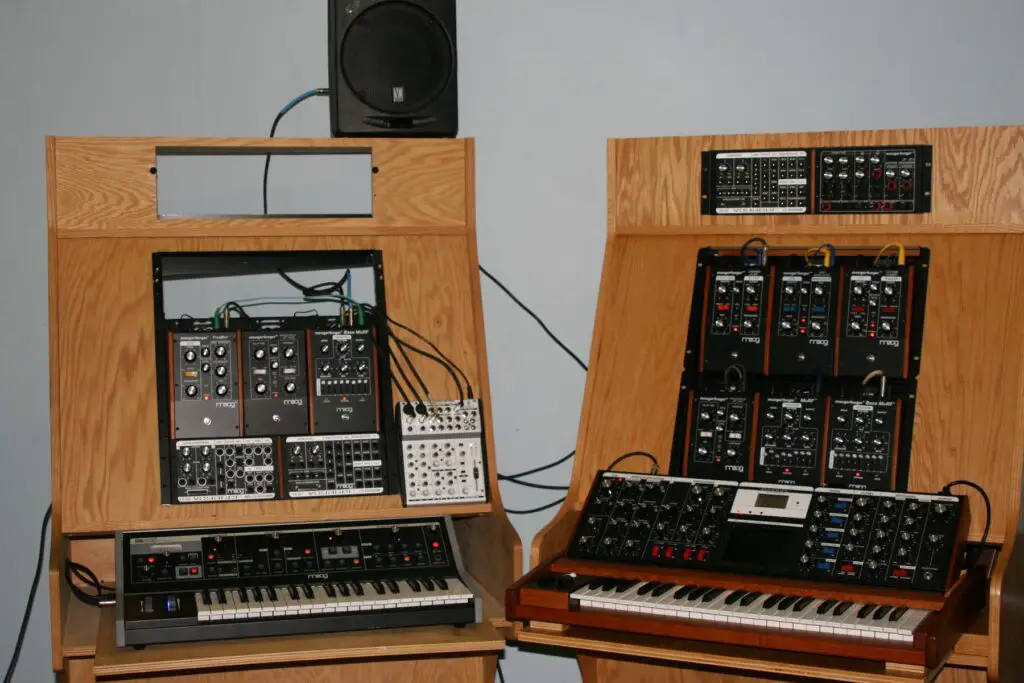Are you a music producer looking to expand your skills and knowledge? Have you ever considered using Linux as your operating system for music production? If so, you’re in the right place. Linux offers a vast range of tools and techniques that can take your music production to the next level. In this blog post, we’ll explore the essential tools and techniques every Linux-using music producer should know. From digital audio workstations to virtual instruments, we’ve got you covered. So, whether you’re a beginner or an experienced producer, read on to learn how Linux can help enhance your music production workflow.
Table of Contents

Introduction to Music Production in Linux: A Beginner’s Guide
Music production in Linux is becoming increasingly popular among musicians and producers who want to create music using open-source software. Linux offers a wide range of tools and applications that can be used for music production, including digital audio workstations (DAWs), audio editors, and plugins.
One of the main advantages of using Linux for music production is its stability and reliability. Linux is known for its robustness and ability to handle complex tasks without crashing or freezing. Additionally, Linux is highly customizable, allowing users to tailor their systems to their specific needs.
However, getting started with music production in Linux can be intimidating for beginners who are used to working with commercial software on other operating systems. It’s important to have a basic understanding of the Linux environment and the tools available for music production. With the right knowledge and tools, anyone can create professional-quality music using Linux.
Top Essential Tools for Music Production in Linux
Linux music production has come a long way in recent years, and there are now a variety of tools available for producing high-quality music on the platform. One of the most popular tools for music production in Linux is Ardour, a digital audio workstation that offers a range of features for recording, editing, and mixing audio. Other essential tools for Linux music production include JACK Audio Connection Kit, which allows you to connect multiple audio applications together, and Hydrogen, a powerful drum machine that can be used to create beats and rhythms. For virtual instruments and effects, you can use plugins such as LV2 or LADSPA. Finally, if you need to work with MIDI data, Qtractor is an excellent tool that allows you to record and edit MIDI sequences. With these essential tools at your disposal, you’ll be well on your way to creating professional-quality music in Linux.
Mastering the Art of Recording and Editing Audio in Linux
Recording and editing audio is a crucial aspect of music production. In Linux, there are several tools available for capturing and manipulating audio recordings. One such tool is Ardour, a digital audio workstation that allows multi-track recording, editing, and mixing. It supports various formats like WAV, AIFF, FLAC, etc., which makes importing/exporting tracks easier.
Another important tool for recording in Linux is Audacity****. This free open-source software comes packed with features like noise reduction and equalization to enhance the quality of your recordings.
For MIDI-based music production in Linux, Rosegarden can be an excellent choice. It offers MIDI sequencing along with notation editor functionalities to edit scores.
When it comes to editing waveforms in detail using sound frequency manipulation algorithms through spectrograms or pitch shifting techniques; utilities such as Sonic Visualizer, Rubber Band, or even Audacity’s built-in Spectrogram display come to mind as useful resources worth considering.
Overall when working on Audio related projects within Linux environments there are no shortage of options whether you’re looking for commercial paid solutions like Bitwig Studio & Reaper DAWs or entirely Open-Source applications mentioned earlier – there’s something out there for everyone!

Tips and Tricks for Mixing and Mastering Music in Linux
Mixing and mastering are two crucial stages in music production that can make or break a track. In Linux, there are several tools available to help you achieve professional-sounding mixes and masters. One of the most popular tools is Ardour, which offers a comprehensive mixing console with advanced routing capabilities. Another powerful tool is JACK Audio Connection Kit, which allows you to connect multiple audio applications and devices together for seamless integration.
When it comes to mixing, it’s important to start with a clean and organized session. Use groups and busses to keep your tracks organized and apply EQ, compression, and other effects as needed. Experiment with panning to create a sense of space and depth in your mix.
For mastering, consider using tools like JAMin or Calf Studio Gear to apply final touches to your mix. Use EQ to balance the frequency spectrum, compression to control dynamics, and limiting to increase overall loudness without clipping. Remember that less is often more when it comes to mastering – focus on subtle enhancements rather than drastic changes.
By mastering the art of mixing and mastering in Linux, you can take your music production skills to the next level and create professional-quality tracks from the comfort of your own home.

Troubleshooting Common Issues in Music Production with Linux
Even with the best tools and techniques, music production in Linux can sometimes present challenges. One common issue is latency, which can cause a delay between when you play a note and when you hear it through your speakers. To fix this, adjust your audio settings to reduce the buffer size.
Another issue is compatibility with certain plugins or software. Make sure to research and test any plugins or software before incorporating them into your workflow. If you encounter compatibility issues, try using a different plugin or software that is known to work well with Linux.
Finally, if you experience crashes or other technical difficulties, make sure to check your system resources and ensure that your computer meets the minimum requirements for the software you are using. You may also want to consider optimizing your system for audio production by disabling unnecessary processes and services. By troubleshooting these common issues, you can ensure a smooth and successful music production experience in Linux.
In conclusion, music production in Linux is a powerful and cost-effective way to create high-quality music. With the right tools and techniques, you can achieve professional-level results without breaking the bank. From recording and editing audio to mixing and mastering your tracks, Linux has everything you need to bring your musical vision to life.
We hope this guide has been helpful in getting you started on your Linux music production journey. If you want to learn more about music production or other related topics, be sure to check out our other content. And don’t forget to share your own experiences and tips with the community – together, we can continue to push the boundaries of what’s possible in music production with Linux.
Questions and Answers
Who uses Linux for music production?
Linux is popular among music producers who prefer open-source software.
What software is available for music production in Linux?
Popular options include Ardour, LMMS, and Rosegarden.
How does Linux compare to other operating systems for music production?
Linux offers stability, security, and customization options for music producers.
What are some common objections to using Linux for music production?
Some users may find it difficult to install and configure software in Linux.
How can beginners get started with music production in Linux?
Tutorials and forums can help beginners learn the basics of music production in Linux.
Who can benefit from using Linux for music production?
Music producers who value open-source software, customization, and stability can benefit from Linux.


